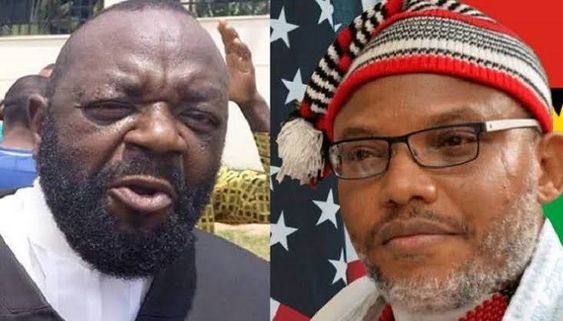Headlines
Lawyer informs court that certain charges against Nnamdi Kanu are unlawful

Aloy Ejimakor, the legal representative of Nnamdi Kanu, the head of the Indigenous People of Biafra (IPOB), has strongly criticized the ruling of the Abuja Federal High Court that it has the authority to address some of the charges against the Biafran activist as being both illegal and unconstitutional.
Ejimakor specifically objected to the court’s decision to consider charges 1, 2, 3, 4, 5, and 8 against Kanu, outlining his position in a formal notice of preliminary objection regarding jurisdiction.
The current charges against the IPOB leader involve allegations of terrorism brought against him by the Nigerian Government.
In a statement issued by Ejimakor, he stated, “An order from this esteemed Court refusing jurisdiction to address counts 1, 2, 3, 4, 5, and 8 of the charges against the defendant/applicant or to dismiss said counts on the basis that the laws they are based on are unconstitutional; and the laws under which the applicant is being prosecuted in these counts have been repealed.
Additionally, an order from this esteemed Court refusing jurisdiction to address Count 3 of the charges against the defendant/applicant or to dismiss said count on the basis that it is unconstitutional, lacks supporting evidence, and is an abuse of the legal process.
Furthermore, an order from this esteemed Court refusing jurisdiction to address counts 1, 2, 4, 5, and 8 of the charges against the defendant/applicant or to dismiss said counts on the basis that the applicant was misled by the absence or failure to specify the location and dates of the alleged offenses and broadcasts.
Lastly, an order from this esteemed Court refusing jurisdiction to address Count 15 of the charges or to dismiss said count on the basis that it does not comply with the Administration of Criminal Justice Act, is outside the territorial jurisdiction of this Court, lacks supporting evidence, and the laws under which the applicant is being prosecuted in these counts have been repealed.
And for any additional order(s) that this Court deems necessary.”
